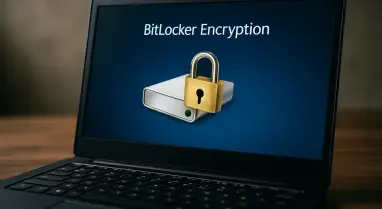Data Breach at PowerSchool Raises Concerns for Fairfax County Schools
The recent data breach at PowerSchool Holdings Inc., a global tech vendor managing student information systems, has caused a national uproar. Fairfax County Public Schools (FCPS) Superintendent Michelle Reid has remained silent, raising concerns among parents, staff, and community members. The breach exposed sensitive information, including student names, addresses, grades, attendance, enrollment, parent names, Social Security numbers, and medical records, as well as teacher data. This incident has highlighted the need for transparency and accountability from FCPS, which operates with a substantial budget of $3.8 billion and executive salaries exceeding $200,000.
Incident Details
FBI Investigation and Dark Web Monitoring
The FBI’s cybersecurity teams are currently investigating the substantial data breach, which has also attracted the attention of global technology experts who are vigilantly monitoring the Dark Web for any signs of the compromised data. The data breach specifically involved the exfiltration of data from PowerSchool’s Student Information Systems (SIS), a managed database that stores extensive details about students and teachers. PowerSchool, headquartered in Folsom, California, reportedly paid a ransom to hackers in exchange for promises to delete the stolen data. This approach has sparked skepticism and increased scrutiny both within the cybersecurity community and among affected school districts across the United States, who are wary of the reliability of such promises.
It remains uncertain whether the stolen data has indeed been deleted, adding to the consternation of parents and school administrators. This has also raised alarms about the potential for the stolen data to resurface in the future despite the hackers’ assurances. Global stakeholders are meticulously watching the Dark Web for any traces of this sensitive information, while cybersecurity professionals analyzing the breach indicate that more rigorous measures and protocols need to be implemented to prevent such incidents from occurring again. The FBI’s involvement underscores the severity of the breach and represents a broader concern for national security, considering the vast amount of student-related data involved.
FCPS’s Initial Response
In a brief and somewhat perfunctory statement, FCPS spokeswoman Julie Allen asserted that the data breach had no impact on FCPS, emphasizing that the district does not use PowerSchool’s SIS. However, her statement conspicuously avoided addressing whether other PowerSchool systems utilized by the district might have been compromised. This has further fueled questions and dissatisfaction among parents and staff within the school community, who are seeking clarity on the extent of the potential risks and any precautionary measures needed.
The lack of a more comprehensive response from Superintendent Michelle Reid has exacerbated the situation. Parents and community members expect transparency and detailed communication about the district’s assessments of the breach, the steps being taken to secure other connected systems, and the protocols in place to prevent future incidents. The omission of such critical information has left many stakeholders feeling vulnerable and uninformed about the true scope of the breach’s impact on their children’s data security. This reticence contrasts sharply with the proactive disclosures seen in neighboring school districts.
Comparative Responses from Other Districts
Proactive Measures by Other School Districts
Unlike FCPS, other school districts across the nation have adopted a more proactive and transparent approach in the wake of the PowerSchool data breach. For instance, Maryland’s Frederick County Public Schools promptly confirmed that two specific “data tables” containing records of both teachers and students were impacted by the breach. Their swift reporting reflects a commitment to keeping stakeholders informed and reassured about the steps being taken to mitigate any adverse effects. Similarly, in Massachusetts, Randolph Public School District Superintendent Thea Stovell Herndon took the initiative by issuing a direct memorandum that addressed the situation head-on and outlined the district’s responses and precautionary measures.
Charles County Public Schools in Maryland, on the other hand, communicated that despite not being directly affected by the breach, they were closely monitoring developments and implementing additional protective measures. These responses highlight a holistic approach to managing the crisis—one that involves not just immediate damage control but also long-term safeguards to fortify data security. This starkly contrasts with FCPS, which has yet to provide a detailed report or plan of action, leaving many to question their level of preparedness and responsiveness to such critical incidents.
Communication and Transparency
These examples of proactive communication from various school districts underscore the significant role that transparency plays in handling cybersecurity incidents. By openly addressing the breach and its implications, these schools aim to build trust and offer reassurance to parents, staff, and students worried about the security of their personal information. The timely dissemination of information and ongoing updates serve to keep all relevant parties informed and involved in the steps being taken to address the situation, thereby fostering a sense of coordinated effort and vigilance.
In sharp contrast, the relative silence and vague statements from FCPS have left stakeholders in a difficult position. The community’s trust can quickly erode in the absence of prompt and clear communication. Transparency is crucial not just for addressing immediate concerns but also for maintaining an ongoing dialogue about cybersecurity practices and the steps that need to be continually adapted in an ever-evolving digital landscape. The lack of comprehensive information from FCPS has thus fueled anxiety and mistrust, emphasizing the need for consistent communication strategies in managing public relations during such incidents.
Financial Ties with PowerSchool
Overview of Contracts
An overview of contracts is essential to understanding the legal agreements between parties. These agreements outline the terms and conditions of the relationship, including obligations, rights, and responsibilities of each party involved. Contracts can be found in various forms, such as employment agreements, service contracts, sales agreements, and lease agreements. Each type of contract serves a specific purpose and provides a framework for the parties to adhere to, ensuring that their interests are protected and that the dealings are legally binding.
FCPS has historically invested a hefty sum, approximately $10.7 million, in various contracts with PowerSchool, reflecting the integration and reliance on its range of educational technology services. In March 2018, West Interactive Services Corp., subsequently acquired by PowerSchool, was awarded a contract to develop a Mass Notification System for an initial five-year period at the cost of $1.1 million. This contract also included continued annual maintenance expenses of around $209,000 extending through 2025. Following this, in June 2018, Naviance Inc., another firm eventually absorbed by PowerSchool, secured a significant contract valued at $712,133.40 for implementing an Academic and Career Planning Resource System, set to expire in 2025.
In 2019, Schoology Inc., later acquired by PowerSchool, was granted a substantial six-year contract worth $8.4 million for an Integratable Learning Management System. This agreement is expected to last until June 2026, highlighting the district’s long-term dependency on PowerSchool’s educational technology solutions. These investments underscore not only the importance of these services to the operational functionality of FCPS but also portray the gravity of potential risks associated with breaches involving such integrated platforms. The cumulative value of these contracts outlines the extent of FCPS’s financial commitments and reliance on PowerSchool for essential educational services.
Implications of Financial Investments
The extensive financial investments made by FCPS in securing services from PowerSchool underscore the critical importance of ensuring the systems’ security and integrity. The recent data breach raises fundamental questions about the due diligence performed by FCPS when selecting and maintaining contracts with such technology vendors. Stakeholders are now evaluating whether there were adequate measures in place to protect sensitive data and whether the contractual agreements included stringent cybersecurity protocols.
Ensuring robust data security measures is imperative, particularly given the scale of financial commitment and the sensitivity of the information managed by these systems. The breach calls into question the efficacy of FCPS’s risk management strategies and highlights the need for continual evaluations and updates to security policies to keep pace with the evolving cyber threat landscape. Additionally, it underlines the necessity for educational institutions to implement comprehensive cybersecurity measures that go beyond basic compliance and address the unique vulnerabilities posed by integrated educational technology platforms. The magnitude of this breach serves as a cautionary tale for all school districts, emphasizing the importance of rigorous vendor risk assessments and continuous monitoring to safeguard against potential threats.
Trends and Risks in the EdTech Industry
Vulnerabilities in the EdTech Sector
The PowerSchool data breach brings to light inherent vulnerabilities within the EdTech industry, a sector where consolidating vast amounts of sensitive educational data is commonplace. Critics have long argued that the industry’s rapid growth trajectory often overshadows essential security measures, leaving educational institutions exposed to cyber threats. The quest for innovative educational technologies and platforms has led many vendors to prioritize scalability and functionality over stringent security protocols, making them attractive targets for cybercriminals.
Prominent investments in EdTech by influential figures like Mark Zuckerberg illustrate the industry’s burgeoning influence within the education domain. However, such investments also signal a rapid expansion that may not always align with comprehensive risk management strategies. This incongruence between growth and security underscores the urgent need for educational institutions to reassess their dependence on third-party technology providers and bolster their internal security measures. The PowerSchool breach serves as a stark reminder of the potential risks and data privacy concerns that can arise within this rapidly evolving sector.
Market Presence and Financial Backing
PowerSchool’s predominant presence in the U.S. market accentuates the widespread impact of the breach. The company claims to service approximately 75% of American school districts and holds data for around 60 million students globally, including 183,000 students from FCPS. This extensive market reach places a significant responsibility on PowerSchool to ensure the highest standards of data security and integrity. The company’s flagship product, the SIS, plays an integral role in student data management, encompassing functionalities ranging from enrollment management and attendance tracking to learning management, analytics, and financial support systems.
In October 2023, Bain Capital acquired PowerSchool for an impressive $5.6 billion, further demonstrating the financial potential recognized within the industry. Vista Equity Partners and Onex Partners remain key minority investors, reflecting substantial backing from influential private equity firms. These investments underscore the significant value and data-driven potential perceived in the education technology sector, a fact that has not gone unnoticed by cybercriminals. The combination of vast data repositories and significant financial backing places educational technology companies like PowerSchool at heightened risk, necessitating comprehensive, multi-faceted approaches to cybersecurity to mitigate potential breaches.
Global and Local Impact of the Breach
Timeline and Scope of the Breach
Hackers infiltrated PowerSchool’s system between December 19 and 28, a breach occurring just over two months following Bain Capital’s acquisition of the company. The intrusion allowed unauthorized access to highly sensitive data, prompting immediate internal responses and heightened vigilance externally across the globe. PowerSchool’s subsequent communications have been met with critique, as some descriptions of their responses appeared inconsistent and unclear, further exacerbating the worries among school districts and tech administrators worldwide.
The uncertainty surrounding the scope and scale of the data exfiltrated has only amplified concerns about the potential misuse or resurfacing of the information. PowerSchool’s lack of cohesive and transparent communication in the immediate aftermath of the breach has led to bolstered fears regarding the company’s ability to handle such significant security incidents effectively. The disparate responses from impacted school districts further highlight the varied levels of preparedness and the importance of comprehensive crisis communication strategies to manage such exigent situations adeptly. This chaotic backdrop necessitates a reevaluation of data security protocols and industry standards within the educational technology landscape.
Responses from Affected School Districts
In response to recent policy changes, affected school districts have voiced a variety of opinions. Some districts are expressing support, noting the potential benefits for students and staff, while others are raising concerns about the implementation and potential drawbacks. The reactions highlight the diverse perspectives and unique challenges faced by different communities in adapting to new educational directives.
The breach elicited prompt responses from numerous school districts across the country, with Michigan’s Kalamazoo and Paw Paw Public Schools among the earliest to communicate potential impacts to their stakeholders. Districts from states such as Connecticut’s Cromwell Public Schools and Nebraska’s Elkhorn Public Schools followed suit, detailing the varying degrees of data exposure and the subsequent actions being undertaken to mitigate any adverse consequences. The collaboration between district administrations and cybersecurity experts underlines the importance of a unified front in addressing such pervasive threats.
The responses from affected districts have varied significantly, reflecting different levels of impact and organizational preparedness. Some districts provided thorough updates and transparent communication channels, aiming to reassure parents and staff while delineating the steps being taken to safeguard data integrity. Others faced challenges in managing the fallout, underscoring the disparities in crisis management capabilities. These varied reactions highlight the critical need for standardized response protocols and robust cybersecurity frameworks that can be swiftly activated across educational institutions to counteract the detrimental effects of such breaches.
FCPS Board Meeting and Aftermath
Silence at the Public Meeting
Despite holding a public board meeting, Fairfax County Public Schools did not address the data breach during the session. Superintendent Michelle Reid also refrained from making any public comments on the matter, leaving many parents, teachers, and community members feeling frustrated and in the dark about the district’s response plans. This silence is particularly troubling given FCPS’s status as one of the nation’s largest school districts and the expectation that it should lead by example in terms of transparency and crisis management.
The absence of any discussion on the PowerSchool breach during the public session further raised concerns about the district’s internal handling of the situation. Parents and educators, in particular, have expressed their dissatisfaction with the insufficient communication, as they are directly affected by the breach’s implications. The lack of accountability and proactive measures during such a critical juncture has intensified worries about future data security practices within FCPS. The contrast with the more open and responsive approaches by other districts accentuates the need for FCPS to adopt a more transparent and communicative strategy moving forward.
Broader Implications for Trust and Security
The absence of a robust official statement from FCPS about the PowerSchool data breach significantly impacts the broader implications for trust and security within the educational community. Cybersecurity experts highlight that even with PowerSchool’s assurances of data deletion, there is an ever-present risk that the stolen information could resurface. This ongoing threat underscores the precariousness inherent in a digitized education system, where data security must be continually fortified to prevent breaches with potentially long-lasting repercussions.
For families and educators, the incident has brought to the forefront the critical importance of robust cybersecurity measures and the need for transparent handling of data breaches. The growing reliance on digital platforms in education necessitates stringent security protocols and ongoing assessments to protect against such vulnerabilities. The PowerSchool breach serves as an urgent call to action for school districts to reevaluate their data security frameworks and crisis management strategies, ensuring they can effectively safeguard student and staff information from similar threats in the future.
PowerSchool’s Official Response
Company’s Statement and Actions
In its deliberate approach to addressing the complexities of cryptocurrencies, the SEC opted for another delay in its verdict on the spot Ethereum ETF. The extension grants the SEC an opportunity not only to conduct an in-depth examination of Ethereum’s suitability for ETF status but also to source public insight, which could heavily sway the conclusion. This speaks to the SEC’s attentiveness to the nuances of digital assets and their integration into regulatory frameworks, which it does not take lightly. The situation closely parallels the stalling faced by Grayscale, who is also waiting for the green light to transform its Ethereum Trust into a spot ETF, raising questions about the contrasting regulatory processes for Bitcoin and Ethereum.
In its official statement managed by FTI Consulting Inc., PowerSchool emphasized its rapid response to the incident, highlighting the deployment of established cybersecurity protocols and a multifaceted response team. The company assured that its operations remain unaffected, reaffirming its commitment to data privacy and customer support throughout the rectification process. PowerSchool’s approach aimed to convey a sense of control and reassurance to its vast clientele within the educational sector.
Despite these assurances, stakeholders remain wary, particularly due to perceived inconsistencies in PowerSchool’s communication and the overall handling of the breach. The company’s emphasis on promptness and the engagement of expert protocols have not entirely dispelled concerns within the affected communities. The depth and breadth of the data exposed necessitate a continuous dialogue and more detailed updates to rebuild trust and ensure stakeholders that their information is now secure. PowerSchool’s efforts reflect the broader challenges faced by EdTech firms in navigating the aftermath of such high-profile breaches while maintaining operational integrity and client trust.
Skepticism and the Need for Vigilance
In its deliberate approach to addressing the complexities of cryptocurrencies, the SEC opted for another delay in its verdict on the spot Ethereum ETF. The extension grants the SEC an opportunity not only to conduct an in-depth examination of Ethereum’s suitability for ETF status but also to source public insight, which could heavily sway the conclusion. This speaks to the SEC’s attentiveness to the nuances of digital assets and their integration into regulatory frameworks, which it does not take lightly. The situation closely parallels the stalling faced by Grayscale, who is also waiting for the green light to transform its Ethereum Trust into a spot ETF, raising questions about the contrasting regulatory processes for Bitcoin and Ethereum.
Discussion platforms such as Reddit have seen a surge in dialogue among IT administrators from various school districts, where skepticism about PowerSchool’s transparency dominates the conversations. Many expressed frustration over the company’s generic reassurances and the lack of detailed, specific explanations about the breach and the remediation steps taken. This sentiment of mistrust highlights a broader issue within the industry regarding the need for clearer and more forthright communication from technology providers in the event of data breaches.
The broader mistrust underscores the pressing need for heightened vigilance and stringent security measures within educational technology infrastructures. As educational institutions increasingly rely on integrated technology platforms, the necessity for ongoing risk assessments, regular security audits, and updating of cybersecurity protocols becomes paramount. The repercussions of the PowerSchool breach serve as a critical lesson for all stakeholders in the education sector about the importance of maintaining robust cybersecurity practices and transparent communication to mitigate damage and safeguard the sensitive data of students and educators alike.
Conclusion
The recent data breach at PowerSchool Holdings Inc., a global tech company managing student information systems, has caused widespread alarm. Fairfax County Public Schools (FCPS) Superintendent Michelle Reid has not yet addressed the situation, creating unease among parents, staff, and community members. The breach compromised sensitive information, including student names, addresses, grades, attendance records, enrollment details, parent names, Social Security numbers, and medical records, as well as data pertaining to teachers. This incident underscores the urgent need for transparency and responsibility from FCPS, which operates with a hefty budget of $3.8 billion and executive salaries exceeding $200,000.
Parents and educators are demanding more openness from the school district regarding how such sensitive data could be left vulnerable. With the increasing reliance on technology in educational settings, ensuring the protection of personal information has never been more critical. The lack of communication from Superintendent Reid is exacerbating the community’s anxieties. Stakeholders are calling for immediate action to prevent future breaches and to establish clear protocols for promptly addressing security incidents. Given the vast resources and significant funding of FCPS, the public expects better safeguards for their children’s private information. It is a stark reminder of the ever-present risks in our digital age and the essential need for vigilant data security practices.






